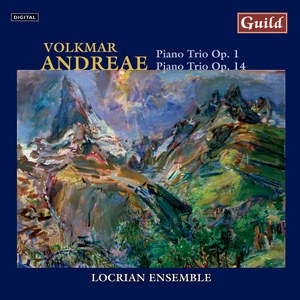STRAD, AUGUST 2007
Swiss-born Volkmar Andreae (1879-1962) was one of the most gifted and individual composers to emerge during the tumultuous period that saw the dying embers of high Romanticism virtually extinguished by the onslaught of modernism. Two things counted heavily against him, however. He was principally celebrated as a conductor and creatively he was an out-and-out tonalist with a tendency towards Brahms the traditionalist rather than the “new” music of Wagner and Liszt.
When Andreae composed his first Piano Trio in 1899 he was working as a repetiteur at the Munich Royal Opera. Cast in three movements, it features a memorable finale that wears its ingenious sonata-rondo structure lightly via an enchanting flow of glowing, lyrical ideas. The Second Trio, in four movements, dates from 1914, by which time Andreae was principal conductor of the Zurich Tonhalle Orchestra and had recently benn appointed director of the Zurich Conservatoire, a post he held for 25 years. Clearly a number of stylistic influences had gone into the melting pot during he intervening period judging by the near-constant flow of Franco-Wagnerian harmonic colours and textural asides (particularly discernable in the presto third movement).
The Locrian Ensemble — violinist Rita Manning, cellist Justin Pearson and pianist Katherine Rockhill — plays with restrained passion and pure-toned eloquence that strikes right to the heart of these elusive yet richly rewarding scores. Manning and Pearson demonstrate a special empathy for Andreae’s yearning phrases, most notably in the haunting Molto adagio of the Second Trio. In even the most heated passages they tantalisingly maintain an appropriate chamber scale, further enhanced by Michael Ponder’s velvet- gloved engineering.
JULIAN HAYLOCK
